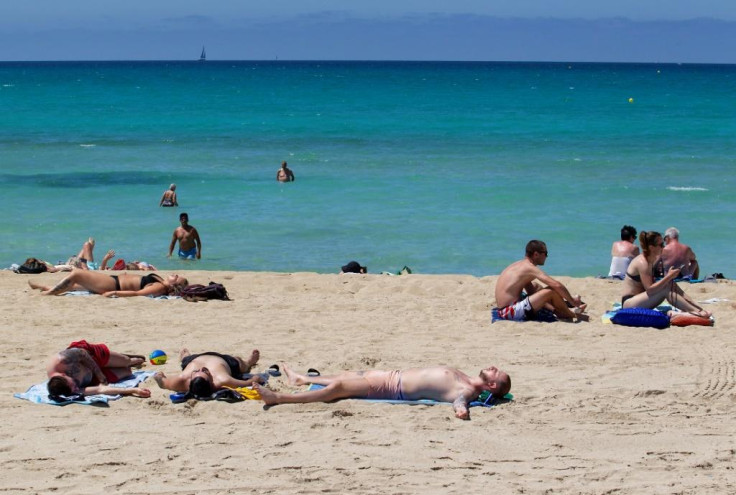Travel Warning: UK, Ireland Warn People Over Contagious, Severe Illness In Spain
The illness, commonly referred to as crypto and caused by a parasite, leads to "watery diarrhoea" but other symptoms include dehydration, stomach cramps, nausea, fever and weight loss.

Holidaymakers heading to Spain have received a warning over the "crypto parasite", a potentially severe and "contagious" stomach bug. Anyone who contracts the crypto parasite will suffer from nasty bouts of vomiting and diarrhea and the illness is called cryptosporidiosis.
Spain is one of the most popular vacation spots for travellers, especially among those from the UK and Ireland. Thousands of British and Irish tourists have been flocking to Spain in recent weeks to enjoy unusually high temperatures amid a summer-like October.
The UK's Health and Safety Executive (HSE) has urged people heading to Spain, particularly those returning from Salou, Catalonia, to be alert for signs of the crypto parasite. Over the last few weeks, several holidaymakers in Ireland have been confirmed as suffering from cryptosporidiosis.
The illness, commonly referred to as crypto and caused by a parasite, leads to "watery diarrhoea" but other symptoms include dehydration, stomach cramps, nausea, fever and weight loss. Notably, some people with cryptosporidiosis have no symptoms at all. Crypto is a waterborne parasite that causes gastroenteritis.
The HSE has warned that the infection can spread through holidaymakers making their way to or from the Spanish holiday hot spot.
Meanwhile, Ireland's Health Protection Surveillance Centre has also issued a hygiene advisory as they are tackling a rise in cases of the contagious condition
"With more Irish holidaymakers returning from abroad with gastrointestinal illness (diarrhoea and vomiting), the HSE is advising people to take extra hygiene precautions when travelling overseas. Increased levels of cryptosporidiosis, a bug that produces gastroenteritis, have been reported over the last month in holidaymakers coming home from some parts of Spain, particularly Salou in Catalonia," read a release from HPSC.
The release from HPSC further explained that there has been a widespread increase in cryptosporidiosis in Europe in August and September, which is most likely because of the extreme weather in the continent, especially in Mediterranean countries, over the summer.
The Irish health body has also urged anyone heading to regions where there is a risk of gastrointestinal diseases, including cryptosporidiosis, to take important measures to safeguard themselves and their families. It said: "Cryptosporidium can be quite contagious. Simple measures will reduce the likelihood of spread".
Some of the precautionary methods that HPSC has suggested include reminders for people to "wash their hands with soap and water after using the toilet, changing nappies, and before eating or preparing food". One must avoid swimming in recreational water (pools, hot tubs, lakes or rivers, etc) if they have cryptosporidiosis and for at least 2 weeks after diarrhoea stops. Cryptosporidium can be spread in a chlorinated pool because it is resistant to chlorine.
© Copyright IBTimes 2025. All rights reserved.






















